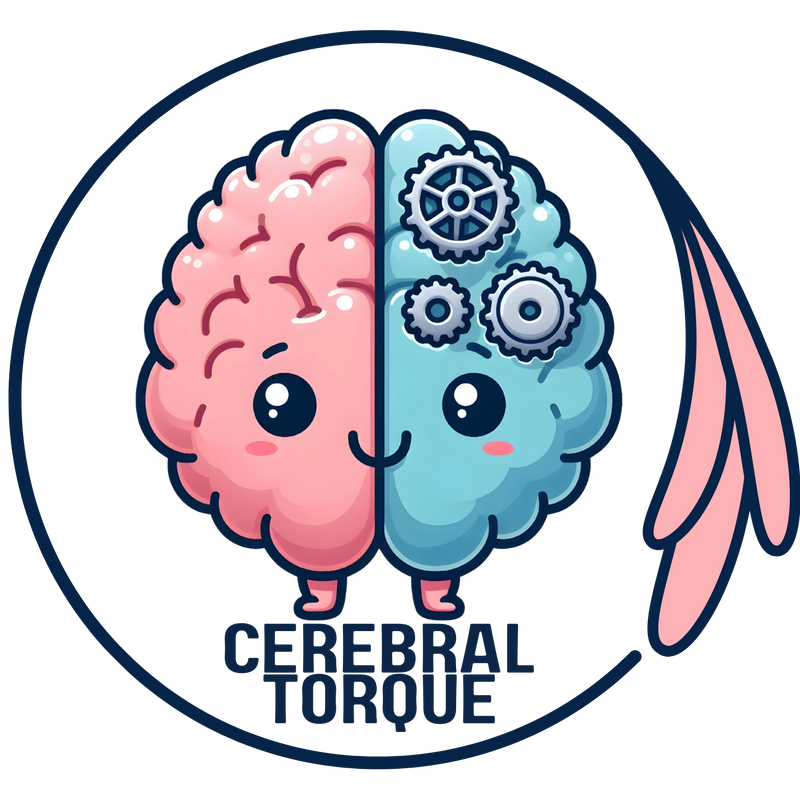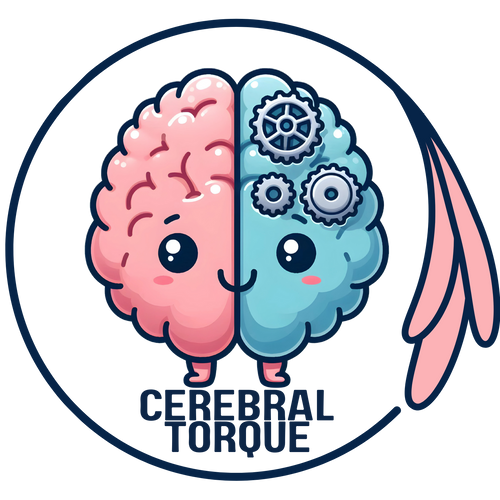One Treatment, Two Conditions: Study Reveals Ajovy's Impact on Migraine and Depression
Posted on May 06 2025,
Fremanezumab (Ajovy) for the Treatment of Patients With Migraine and Comorbid Major Depressive Disorder
Overview
Migraine and major depressive disorder frequently occur together (comorbid conditions), creating significant challenges for patients - including making migraine and migraine overuse/adaptation headache more difficult to treat. Until now, evidence evaluating preventive migraine therapy in this population has been limited. The UNITE study is the first placebo-controlled randomized clinical trial specifically designed to assess the efficacy of fremanezumab (Ajovy®), a calcitonin gene-related peptide (CGRP) monoclonal antibody, in patients with both conditions.
Quick Summary of Findings
- Fremanezumab significantly reduced the number of monthly migraine days compared to placebo
- Treatment also led to significant improvements in depressive symptoms
- Both improvements were maintained throughout the open-label extension period
- No new safety concerns were identified
- This is the first placebo-controlled trial to demonstrate improvement in both migraine and depression with a single intervention
Study Design and Participants
The UNITE study was a 28-week, multicenter, double-blind, placebo-controlled, parallel-group randomized clinical trial conducted between July 2020 and August 2022 at 55 centers across 12 countries. It included a 4-week screening period, 12-week double-blind treatment period, and 12-week open-label extension.
Study Population
Eligible participants were adults (aged 18-70 years) with:
- Episodic migraine (4-14 headache days/month) or chronic migraine (15+ headache days/month)
- Major depressive disorder (according to DSM-5 criteria) for 12+ months before screening
- Active depression symptoms (PHQ-9 score ≥10 at screening)
- Normal cognitive function (Mini-Mental State Examination score ≥26)
Note: Ajovy® (fremanezumab) is FDA-approved for the preventive treatment of migraine in adults.
A total of 353 patients (mean age: 42.9 years; 88% female) were randomized 1:1 to receive either monthly fremanezumab (225 mg) or matched placebo via subcutaneous injection. Of these, 48% had episodic migraine and 52% had chronic migraine.
Importantly, 64% of participants were taking a stable-dose antidepressant medication that was continued throughout the study, making the sample representative of real-world patients with these comorbidities.
Key Findings: Migraine Days
The primary endpoint of the study was the mean change from baseline in monthly migraine days during the 12-week double-blind period. Results showed significant improvement with fremanezumab treatment.
50% Response Rate
A significantly higher proportion of patients achieved at least a 50% reduction in monthly migraine days during the 12-week double-blind period:
- Fremanezumab: 33% of patients
- Placebo: 13% of patients
- By week 12: 40% of fremanezumab patients vs. 25% of placebo patients
"Compared with placebo, patients treated with fremanezumab experienced significant reductions in monthly migraine days during the 12-week double-blind period, which were sustained and became numerically larger in the open-label extension."
Key Findings: Depression Outcomes
A key secondary endpoint was the change in depressive symptoms as measured by the Hamilton Depression Rating Scale–17 Items (HAM-D 17) at week 8. Here too, fremanezumab showed significant benefit.
Understanding HAM-D 17
The HAM-D 17 is a standard efficacy outcome in antidepressant clinical trials, widely used by psychiatrists to assess depressive symptoms. A reduction of 3-8 points is considered clinically meaningful.
Patients in both groups demonstrated a clinically meaningful response in depressive symptoms. However, the statistically significant benefit of fremanezumab over placebo suggests its superior effect on reducing depression symptoms.
"Although treatment with fremanezumab and placebo both resulted in clinically meaningful reductions in depressive symptoms, fremanezumab achieved statistical significance vs placebo at week 8."
Other Patient-Reported Outcomes
The study also evaluated several other patient-reported outcomes that provide additional context for the quality-of-life impact of treatment.
Understanding these measures
- HIT-6: The 6-Item Headache Impact Test measures headache-related disability. A reduction of 8 or more points indicates a clinically meaningful improvement.
- PHQ-9: The 9-item Patient Health Questionnaire assesses depression severity. Both groups showed clinically meaningful improvement throughout the study.
- Open-Label Extension: After the 12-week double-blind period, all patients received fremanezumab for another 12 weeks, with improvements maintained or enhanced during this phase.
Safety Profile
Fremanezumab was generally well-tolerated with a safety profile consistent with previous clinical trials, despite the clinical complexity of this population.
Safety Findings
- 40% of fremanezumab patients and 27% of placebo patients reported at least one adverse event
- Most adverse events were mild or moderate in severity
- The most common adverse events were infections/infestations and injection site reactions
- No deaths occurred in either treatment group
- No suicidality risks were identified, an important consideration in patients with depression
It is important to note that this study occurred during the COVID-19 pandemic, and all COVID-19 infections were recorded as adverse events, which may have influenced the overall adverse event rate.
Potential Biological Mechanisms
The study's results raise interesting questions about the relationship between migraine and depression, and how CGRP-targeted therapy may affect both conditions.
Possible Connections
- CGRP has been implicated in the pathophysiology of depression, with increased CGRP activity observed in the brains of patients with major depressive disorder
- The bidirectional relationship between migraine and depression suggests shared underlying mechanisms
- Improvements in depressive symptoms may be due to both direct effects on depression pathways and indirect effects from migraine relief
- Further research is needed to understand whether migraine improvement precedes depression improvement, or vice versa
"The results of the UNITE study suggest that fremanezumab was effective in a difficult to treat clinical population with migraine and comorbid major depressive disorders and may also be effective in alleviating psychiatric comorbidities, therefore reducing the cumulative burden on patients."
Clinical Implications
The findings from this study have important implications for clinical practice, particularly for patients who struggle with both migraine and depression.
Implications for Practice
- Ajovy® (fremanezumab) may provide an effective option for patients with both migraine and major depressive disorder
- The ability to address both conditions with a single treatment could simplify management and reduce medication burden
- Treatment efficacy was demonstrated despite patients having long disease histories (average 20.7 years since migraine diagnosis)
- Benefits were seen even in patients already taking antidepressant medications at stable doses
- Clinicians should consider migraine-specific preventive treatments like Ajovy® in patients with depression, rather than relying solely on antidepressants for migraine prevention
Historically, patients with migraine and comorbid depression have been treated with tricyclic antidepressants or venlafaxine. While these treatments can address both conditions, they sometimes have limited efficacy for migraine and poor tolerability profiles. The results of this study provide evidence for an alternative approach.
Based on: Lipton RB, Ramirez Campos V, Roth-Ben Arie Z, Galic M, Mitsikostas D, Tassorelli C, Denysenko L, Cohen JM. (2025). Fremanezumab for the Treatment of Patients With Migraine and Comorbid Major Depressive Disorder: The UNITE Randomized Clinical Trial. JAMA Neurology, published online May 5, 2025. DOI: 10.1001/jamaneurol.2025.0806
Read the Full StudyMon, Nov 17, 25
Migraine Research - During the week of my absence.
Migraine Research - During the week of my absence. The Association Between Insomnia and Migraine Disability and Quality of Life This study examined how insomnia severity relates to migraine disability...
Read MoreSat, Nov 01, 25
Anti-CGRP Monoclonal Antibody Migraine Treatment: Super-Responders and Absolute Responders and When to Expect Results
Anti-CGRP monoclonal antibodies achieved 70% super-response and 23% complete migraine freedom in a one-year study. Most dramatic improvements occurred after 6 months of treatment. For patients with chronic or high-frequency...
Read MoreAll Non-Invasive Neuromodulation Devices for Migraine Treatment
Wondering if migraine devices actually work? This guide breaks down the latest evidence on non-invasive neuromodulation devices like Cefaly, Nerivio, and gammaCore. Learn which devices have solid research backing them,...
Read More



